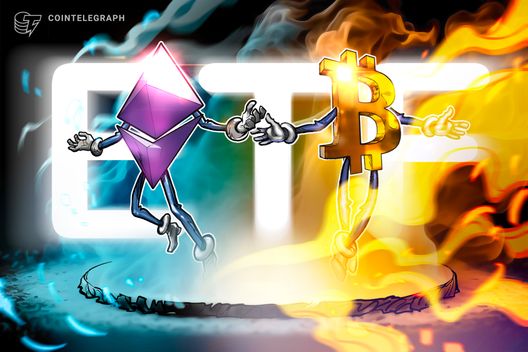Web3 Morning News is a comprehensive morning news column launched by Web3Caff for the Web3.0 field based on important news, official dynamics and good articles in the past 24 hours, aiming to help Web3.0 enthusiasts and builders quickly understand the latest industry trends. Of course, if you want to know the latest industry trends and exciting articles in a timely and comprehensive manner, please remember to follow our official Twitter
Cover: Poseidon
- Fogo launches high-performance Layer 1 SVM chain public beta network

- Circle Launches Circle Gateway

- FTX Hearing Minutes

- Ethereum Validator Queue Exits Nearly $2 Billion

- South Korean regulators call for limits on ETF holdings in crypto companies like Coinbase

- Polymarket reportedly considering issuing its own stablecoin

- PNC, the eighth largest bank in the United States, partners with Coinbase to provide cryptocurrency services to customers

- Hong Kong Customs cracked a case of suspected money laundering using stablecoins

- International remittance service company Western Union plans to integrate stablecoin services

- AI data layer startup Poseidon completes $15 million seed round led by a16z

- South Korean blockchain infrastructure provider DSRV completes first round of B financing of approximately US$11.6 million

You may have missed some great articles
This 22,000-word research report was written by Jesse, a researcher at Web3Caff Research. It systematically analyzes Aptos and Sui, two Move public chains with the same origin but different paths, and conducts five in-depth analyses around their development paths, technical architectures, and ecological evolution:
① How do Aptos and Sui diverge in terms of resource models, security mechanisms, and parallel execution paths?
② Which dominant application scenarios are Sui's object paradigm and Aptos' pipeline execution model suitable for?
③ How do the two new consensus protocols, Mysticeti and Raptr, break through the performance bottleneck of traditional BFT?
④ Why does the development of the on-chain ecosystem present “high-frequency interaction but differentiated income”? How to judge the real user’s willingness to pay?We have also included a Move technology comparison chart, Sui vs Aptos performance data table, ecological path map, on-chain payment willingness analysis table, etc.
Disclaimer: As a blockchain information platform, the articles published on this site only represent the personal opinions of the author and the guest, and have nothing to do with the position of Web3Caff. The information in the article is for reference only and does not constitute any investment advice or offer. Please comply with the relevant laws and regulations of your country or region.
Welcome to join the Web3Caff official community : X (Twitter) account | Web3Caff Research X (Twitter) account | WeChat reader group | WeChat public account








